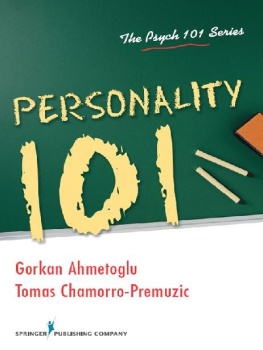TO DOROTHY, MY MOTHER Prefacing Quotations "....in regard to mental qualities, their transmission is manifest in our dogs, horses and other domestic animals. Besides special tastes and habits, general intelligence, courage, bad and good tempers, etc., are certainly transmitted."
Charles DARWIN, 1871. "In course of time, there seems no reason why the intellective index (or system of indices) should not become so well understood, as to enable every child's education to be properly graded according to his or her capacity. Thus the present difficulties of picking out the abler children for more advanced education and the 'mentally defective' children for less advanced would vanish in the solution of the more general problem of adapting education to all."
Bernard HART & Charles SPEARMAN, 1912. "....the injunction to 'face the facts' has for too long been advanced within the delusion that 'the facts' are there and have merely been 'discovered' by psychometry.... IQ psychology subsists on a thin gruel of theory produced (in a way typical of the pre-paradigmatic sciences) under great ideological constraints in turn-of-the-century Britain.... The revived fashion for the g factor perhaps indicates a belated recognition among psychometricians of the shortcomings of operationalism, and the need to ground IQ psychology in a theory of intelligence."
Brian EVANS and Bernard WAITES, 1981. "The big unreported story about the study of intelligence in the last decade is the remarkable resilience and importance of g."
Charles MURRAY, 1995.
ABOUT THE AUTHOR The author is well known for his contributions to research and debate on intelligence and personality. He pioneered 'inspection time' testing in Britain and the USA. He lectures in psychology at the University of Edinburgh and is a Fellow of the Galton Institute.
FOREWORD BY THE AUTHOR TO THE PRECEDENT EDITION - On February 29th, 1996, this book, THE g FACTOR, was published in the UK. by John Wiley & Sons Ltd. of Chichester. Several weeks later, on April 14th, London newspaper reports of interviews with me began to appear saying I thought Black people had a lower average IQ than did Whites; and that, since I thought psychology and race had deep links, probably substantially genetic, I had agreed I could be called a 'scientific' - though not a common-or-garden - 'racist'.
- On April 17th, with the book was on the verge of publication in the USA, Wiley Inc., of New York, denounced (unspecified) views of mine, both relayed by the media and appearing in the book, as "repellent." Thus they were withdrawing the book from publication. UK Wiley promptly followed suit.
- On May 31st, Edinburgh University, having set up an Inquiry into me after students had demanded I be sacked, announced publicly that I was a fair examiner and that they would not be bringing any disciplinary charges against me for anything at all. However, they would be expecting {largely unspecified} improvements in my 'teaching style.' Apparently I would somehow need to cultivate better relations with students; and my Department would have to provide alternative coverage of the 'controversial' subjects on which I lecture. Privately, the University wrote to me to say I should go easy on sexual topics and provide the students with more spoonfeeding [handouts, visual aids]. I denounced the 'Inquiry' as a failed witch-hunt that had produced only a farce - while odiously reserving to itself the right to resume its unconstitutional inquisition at any moment of its own choosing.
- On June 10th, I began 'going public' (in emailed Newsletters and on the Internet) with my various offers to Wiley as to how to settle the dispute and re-publish the book. At the time of writing, however, Wiley have agreed to none of my offers.
The above is, I trust, an objective brief summary of what can readily be imagined to have been two months of grave uncertainty as to the fate of my friendships, my finances, my career and my book. Essentially I have been hounded for my realism about race and IQ by my publisher, many elements of the Press, left-wing academics such as Professors Steve Jones (University College London) and Steven Rose (The Open University), my students, the Anti-Nazi League and my own university. I have made many new and wonderful friends in the course of all this. In particular, Calvin Langton, Ed Miller, John Pate, Bill Summers, Glayde Whitney, Rita Zrcher of the US National Association of Scholars (NAS) and John Furedy of the Canadian Society for Academic Freedom and Standards (SAFS) have provided invaluable support. However, the failure of politicians, lawyers, publishers and organized bodies to come to my support has been striking. In Britain, the only organized group to campaign conspicuously for my academic freedom of expression has been the Revolutionary Communist Party - though their efforts were ably complemented by those of the well-connected left-wing journalist Marek Kohn. Fortunately I have the 'old' form of academic tenure that is proof against my being made 'redundant'; but when a publisher can de-publish without consultation after a year of work and successful skipping through reviewers' hoops, it can be seen that the laws of contract and the arrangements for academic freedom of expression are both in a parlous state in the modern West. (Why did I not go to law? - For the usual reason. In Britain, only the very rich and the legally-aided poor can afford the gamble that breach-of-contract and defamation actions involve.) Thus this edition comes about very much as an act of desperation - hoping to make my findings and views known despite truly vast efforts to frustrate me. In view of the many kind words that have been said about the book by eminent colleagues (notably Emeritus Professor Hans Eysenck, Institute of Psychiatry, University of London, Emeritus Professor Richard Lynn, University of Ulster, Dr Jim McKenzie, University of East London, and Professor Phil Rushton, University of Western Ontario), I have no doubt it is worth making this effort to reach out. I believe that only those who will scour the book for the alleged "repellent" passages will be thoroughly disappointed. I have made minor corrections for this edition and am particularly grateful to John Loehlin and Glayde Whitney for improvements they drew to my attention. However I have done nothing to modify or remove any of the passages that might, on casual reading or quotation out-of-context, send the high priests of 'political correctness' into hysterics. Because I am here working from my disks of February 1995, not from Wiley's of February 1996, there will be many minor discrepancies between the two texts. However, anyone wishing to check whether passages appearing here also appeared as such in the Wiley edition is welcome to check with me. (Please send in the article or chapter you have drafted, highlighting the quotations from 'THE ' |









